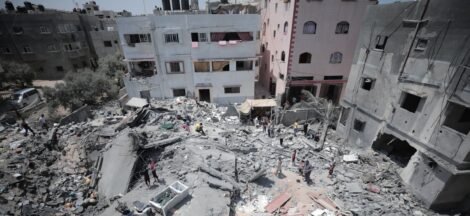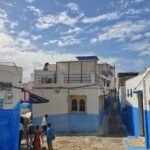Saudi Authorities Seize 28.9kg of Cocaine in Jeddah: A Major Blow to Drug Trafficking
In a significant crackdown on narcotics smuggling, Saudi authorities recently intercepted a major shipment, resulting in a cocaine seizure in Jeddah totaling 28.9 kilograms. This operation underscores the Kingdom’s unwavering commitment to combating drug trafficking and protecting its borders from illegal substances. The cocaine seizure in Jeddah highlights the vigilance of Saudi security forces and their ability to dismantle sophisticated smuggling networks. As drug trafficking remains a global challenge, this successful interception serves as a warning to criminal organizations attempting to exploit Saudi Arabia’s ports.
Details of the Cocaine Seizure in Jeddah
The Saudi General Directorate of Narcotics Control (GDNC) announced the cocaine seizure in Jeddah after a meticulous investigation led to the discovery of the illicit substance concealed within a commercial shipment. The 28.9kg haul, with an estimated street value in the millions, was intercepted at one of Jeddah’s key entry points. Authorities have not disclosed the exact origin of the shipment, but preliminary reports suggest it was part of a broader international drug trafficking operation targeting the Gulf region.
This operation reflects Saudi Arabia’s advanced surveillance and intelligence capabilities, which have been strengthened in recent years to combat organized crime. The GDNC, in collaboration with customs officials, utilized cutting-edge scanning technology and profiling techniques to detect the hidden narcotics. Such measures are part of the Kingdom’s broader strategy to enhance border security and prevent the infiltration of illegal drugs.
The Growing Threat of Drug Trafficking in the Region
Drug trafficking remains a persistent challenge in the Middle East, with criminal syndicates constantly evolving their methods to evade detection. The cocaine seizure in Jeddah is just one example of how traffickers attempt to exploit major trade routes to distribute narcotics. Saudi Arabia, due to its strategic location and extensive port facilities, is often targeted by smugglers transporting drugs from South America, Europe, and other regions.
In 2025, Saudi authorities have ramped up efforts to counter this threat, implementing stricter inspections and leveraging international partnerships to track and dismantle drug networks. The Kingdom’s zero-tolerance policy towards narcotics has led to numerous high-profile seizures, reinforcing its reputation as a leader in regional drug enforcement. The recent bust in Jeddah further demonstrates the effectiveness of these measures.
Legal Consequences for Drug Smugglers in Saudi Arabia
Saudi Arabia enforces some of the world’s strictest penalties for drug-related offenses, including lengthy prison sentences and, in severe cases, capital punishment. Those involved in the recent cocaine seizure in Jeddah could face severe legal repercussions if convicted. The Kingdom’s judicial system treats drug trafficking as a grave crime, given its destructive impact on society, including addiction, financial ruin, and family breakdowns.
International observers have noted that Saudi Arabia’s stringent drug laws serve as a powerful deterrent. The GDNC frequently publicizes successful operations to reinforce the message that drug smuggling will not be tolerated. This transparency also helps build public trust in law enforcement agencies and encourages community cooperation in reporting suspicious activities.
The Role of Technology in Combating Drug Smuggling
Advanced technology has become a cornerstone of Saudi Arabia’s anti-narcotics strategy. The cocaine seizure in Jeddah was made possible through the use of high-resolution scanners, artificial intelligence (AI)-powered cargo screening, and data analytics. These tools enable authorities to identify anomalies in shipments that may indicate concealed contraband.
Additionally, Saudi security forces employ biometric systems and international databases to track known traffickers and their associates. Collaboration with Interpol and other global law enforcement agencies further enhances the Kingdom’s ability to intercept drug shipments before they reach local markets. This multi-layered approach ensures that traffickers face increasing difficulties in bypassing Saudi customs.
Public Awareness and Community Involvement
Beyond enforcement, Saudi Arabia invests heavily in public awareness campaigns to educate citizens and residents about the dangers of drug abuse. The government runs programs in schools, mosques, and media platforms to highlight the risks associated with narcotics and the legal consequences of involvement in drug-related activities.
Community engagement is another critical component of the Kingdom’s strategy. Authorities encourage individuals to report suspicious behavior through dedicated hotlines and mobile apps, ensuring that law enforcement can act swiftly on credible tips. The success of the cocaine seizure in Jeddah was partly attributed to intelligence gathered from vigilant citizens.
International Cooperation in Drug Enforcement
Saudi Arabia actively participates in global efforts to combat drug trafficking, working closely with neighboring Gulf states, the United Nations Office on Drugs and Crime (UNODC), and other international bodies. Joint operations and intelligence-sharing agreements have led to several high-profile busts across the region.
The Kingdom’s commitment to international cooperation was evident in the aftermath of the cocaine seizure in Jeddah, as authorities collaborated with foreign counterparts to trace the supply chain and identify key players in the smuggling network. Such partnerships are essential in disrupting transnational crime syndicates that operate across multiple jurisdictions.
The Economic and Social Impact of Drug Seizures
Every major drug bust, including the recent cocaine seizure in Jeddah, has far-reaching economic and social benefits. By intercepting large quantities of narcotics, authorities prevent these substances from reaching vulnerable populations, thereby reducing addiction rates and associated healthcare costs. Additionally, disrupting trafficking operations weakens criminal enterprises, depriving them of significant revenue streams.
From a social perspective, successful drug seizures reinforce public confidence in law enforcement and deter potential offenders. They also send a strong message that Saudi Arabia remains steadfast in its mission to maintain a drug-free society, aligning with the goals of Vision 2030 to promote health, security, and prosperity.
Future Measures to Strengthen Drug Control
Looking ahead, Saudi authorities plan to further enhance their anti-narcotics capabilities through increased investment in technology, training, and cross-border collaboration. The cocaine seizure in Jeddah serves as both a milestone and a motivator for continued vigilance. Future strategies may include expanded use of AI in cargo inspections, deeper international intelligence integration, and more rigorous profiling of high-risk shipments.
As drug traffickers adopt more sophisticated concealment methods, Saudi Arabia remains proactive in adapting its countermeasures. The Kingdom’s comprehensive approach—combining enforcement, prevention, and public engagement—ensures that it stays ahead in the fight against illicit drugs.

Conclusion
The recent cocaine seizure in Jeddah marks another victory in Saudi Arabia’s relentless battle against drug trafficking. With 28.9kg of cocaine confiscated, the operation highlights the effectiveness of the Kingdom’s security apparatus and its commitment to safeguarding society. As Saudi Arabia continues to strengthen its anti-narcotics framework, such successes will play a crucial role in deterring criminal networks and protecting future generations from the scourge of drug abuse.




 KSrelief Somalia Aid: Food Delivery in Middle Shabelle
KSrelief Somalia Aid: Food Delivery in Middle Shabelle